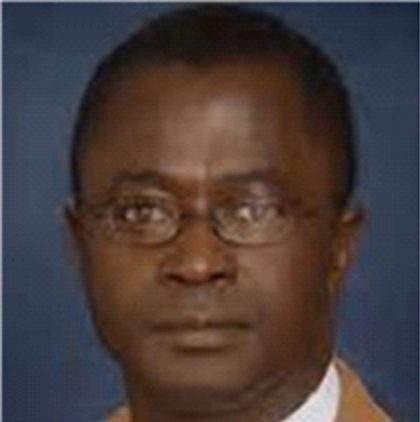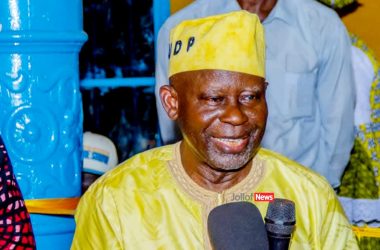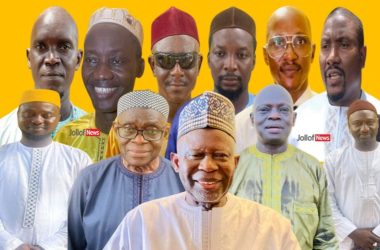
The signs that a (truth) commission may end in failure arewhen it fails to take any conflict of interest and impartiality seriously.
Similarly, if seemingly biased appointments to the Commission are greeted with suspicion by some fair-minded victims, victims’ families, and (perceived/alleged) perpetrators of wrongdoing, but ignored by the Executive, that is also a recipe for Commission failure, not least because persons recommended by the Commission for prosecution for bearingthe greatest responsibility for human rights violations and abuses [TRRC Act, 2017; section 15(1)(h)(i)] could justifiably appeal against the recommendation of the Commission on thegrounds that the investigations carried against them were headed by a (conflicted and possibly biased) Director of Research and Investigations Unit who was employed by a (conflicted) Executive Secretary who in turn was employed by the (seemingly conflicted) President who has been excessively empowered by the TRRC Act, 2017 – which the Executive cannot follow. Do we care to imagine the legal cost to the country of such a legal challenge?
It is for this and many other reasons that voices that cry for unfairness and impartiality, from any source, must be noticed and addressed in a timely fashion by those at the top, otherwise the Commission may fail. And I think it would be reasonably justified to label leaders that fail to heed such cries of foul play as self-serving, and possibly dictators who put their personal interests above the interests of the citizens they are supposed to serve.
Twenty-two years of Jammeh’s brutality have left The Gambian society in a fractured state. We seem to be getting along reasonably well, but a badly run TRRC which is in the making may soon reveal and potentially make worse the dark years of mistrust that was the order of the day in the Jammehyears.
In other words, a badly run TRRC may once again reveal the underbelly of mistrust with its sinister consequences that were the hallmarks of the previous regime. I am of the view that when truth telling starts, our very fragile security system is ill-equipped to address any societal security challenges that the TRRC may reveal.
Indeed, it may cause a social upheaval we have never experienced in our history. Once more, such a scenario may be the result of allowing a hugely inexperienced Secretariat, Investigators, and potentially inexperienced Commissioners and Chairperson topreside over such a complex task. Again, the lack of trusted security forces to support the TRRC’s work, with no relevant support for the victims/victims’ families/perpetrators makesour TRRC a truly toxic adventure.
Yes, we need a truth commission that establishes the truth of what happened in our dark history (1994-2016) and seeks corrective mechanisms to bring about justice and national healing, so that we can say never again. But doing that needs appropriate timing. A previous post talked about the timing of the TRRC. Some might recall that the Truth, Justice and Reconciliation Commission of Kenya (TJRC) was set up in 2008.
The Commission was mandated to investigate, analyse, and report on what happened between 1963 to 2008 in regards to gross human rights violations, economic crimes, illegal land acquisition, marginalisation of communities, ethnic violence, etc., including the context in which those crimes were committed, but it had no mandate to prosecute (click here, and here for some information).
It is hopefully obvious that some of the victims, victims’ families, and perpetrators were of blessed memory by the time the TJRC was set up in 2008. And by the time the Commission got underway and completed its work, it is natural that others too may have responded to the forces of nature (passed on).
The reason for bringing Kenya’s TJRC here is that it took Kenya some considerable amount of time to establish its Truth Commission. The timing of when to do things is an important trademark of a good leader and so the saying goes that a bad leader does the right thing at the wrong time.
The truth is that truth commissions are notoriously difficult to set up – even for countries with some capacity, and hence the reason why many commissions face criticisms and invariably fail (click here, here, here, and here and references therein for more information) because capturing the victims’, victims’ families and perpetrators’ perception of fairness and impartiality as well as their expectations – the cornerstones of any commission, are very difficult balancing acts. Nevertheless, timing is important and on balance, good leaders are good listeners; intuitive; they also surround themselves with a good team and together they try and do the right thing at the right time, as a team.
Given some of the apparent inappropriate advertisements and the manner in which the appointments to the Commission are being made by (conflicted) individuals appointing (seemingly conflicted) staff and the negative public reactions that follow the announcements of such posts, I remain totally convinced that the TRRC is likely to be a failure. Therefore, embarking on the TRRC at this time would be wrong. I know that this is a bitter pill to dispense/swallow, but we must remember that in our bid to get to the truth of what happened in the 22 years of dictatorship, both victims and perpetrators – in effect all of us, must go about recording the truth, seeking justice and go through the process of reconciliation in the right manner so that our society and national interests remain intact.
Let us visit the problematic TRRC Act, 2017 for a moment. In fulfilment of its objectives, the Act mandates that, where necessary, individuals be summoned or subpoenaed to the Commission (TRRC Act, 2017; section 15(1)(g) – remember this may probably follow the conclusion of the work headed by a (conflicted) Director of Research and Investigations Unit who was appointed by a (conflicted) Executive Secretary who was also appointed by the (seemingly conflicted) President who was granted excessive powers by the TRRC Act (2017) they seem not to be able to follow. For example, when the President appointed an Executive Secretary of the TRRC(TRRC Act, 2017; section 22(2), it seems that he, the Minister and the Public Service Commission paid no regard to the TRRC Act’s disclosure of interest clause (TRRC Act, 2017; section 17(1-4) because we all know that the appointed Executive Secretary of the TRRC is conflicted.
To add insult to injury (– at the very least, this is how alleged/accused perpetrators would see it), the (conflicted) Executive Secretary was permitted to recruit staff to the Commission.Yes, the TRRC Act, does empower the Executive Secretary of the TRRC to appoint staff to the Commission as it may require (TRRC Act, 2017; section 24(1)(3), but it is my view that the appointment of a (conflicted) Executive Secretary makes him a biased individual who should therefore not be permitted to recruit staff to the Commission. In my view, ifthe (conflicted) Executive Secretary must remain in his post, then it would have been wise to not permit him to continue to recruit staff to the Commission.
In other words, it should be within the spirit of the TRRC Act, which aspires to see justice served by following due process, to not permit a conflicted individual to recruit staff to the Commission. Without quickly implementing such a safeguard, the mandate of the problematic TRRC Act, 2017 was followed and we saw that it led to the (conflicted) Executive Secretary also appointing a (conflicted) Director of Research and Investigations Unit, one of the most important posts in the TRRC.
Clearly, these appointments have now severely undermined the credibility and impartiality of the Commission in the eyes of objectively-minded individuals, and most probably the UN, ECOWAS, AU and donor agencies – if they are observing us. We also know that the problematic TRRC Act, 2017 empowers the use of police assistance to enforce its powers (TRRC Act, 2017; section 15(1)(h). So if any objectively-minded victim(s) or (accused/alleged) perpetrator(s) of rights abuses fail to observe section 15(1)(g) of the TRRC Act, 2017 for any reason – say, because they feel that the procedures and processes are impartial and we know they are, the police may help (TRRC Act, 2017; section 15(1)(h), so that section 15(2)(a-c) of the TRRC Act, 2017 can be observed. But do we havethe loyalty of our police (security) service to carry out such a function?
Just to give a few examples, is it not the same police service that recently opened fire, injured and killed someinnocent protestors in Faraba Banta, which is now the subject of the Faraba Banta Commission? Is it not the same security service that arrested and detained Dr Ismaila Ceesay and also arrested and severely beaten the journalist Pa Modou Bojang?
Further, it is implied in the TRRC Act, 2017 that state institutions such as the police, army and the NIA may be subjects of the Commission’s investigations (TRRC Act, 2017; section 15(3)(4). Does anyone convinced that these seemingly conflicted institution(s) can be trusted to provide security or be relied upon (TRRC Act, 2017; section 15(1)(h), so that the Commission’s mandate can be observed (TRRC Act, 2017; section 15(2)(a-c)?
In a recent piece, a call was made for The Gambia Bar Association to come out and clarify its position on the TRRC Act, 2017 and the appointments to the TRRC so far. Although it would be unreasonable to expect the Bar Association to organise itself within a short time and make a statement, it has now come to light that the Association may not be able to make a statement anytime soon as the Bar Association seems to be in a state of disarray at present. I hope that harmony shine its brightest lights on the Association soon. But is it not bizarre that Parliament has chosen to remain mute over these apparent failings in the setting up of the TRRC?
I think it is appropriate to say that we are at a crossroads; choosing a wrong course of action may deepen the fractures within our society and may potentially lead to mob justice. If we say that it is the time of the victims of Jammeh’s brutality to have their cake and eat it – and so we should appoint to the Commission those who we think may give us the outcome we desire, we may be doing the same unjust and unethical things we associated with the Jammeh years.
I think the international community will look down on us; I think we must care about what others think of us. An eye for an eye and a tooth for a tooth will leave us all blind and toothless. Furthermore, such an approach will not contribute to breaking the cycle of wrongdoing, mistrust and violence that gripped our country for 22 years. A wrong course of action may either cause the rebirth of a new type of hatred –a result of the likelihood of hearing things we hadn’t known/imagined occurred- which is likely to add fuel to the smouldering cycle of wrongdoing, mistrust and violence in The (new) Gambia.
I think getting to the truth of the rights violations under Jammeh requires that we have unbiased and impartial investigations of the truth. When (accused/alleged/perceived) perpetrators and victims raise concerns of procedures and processes of a commission, we must all sit up and listen and take corrective measures that aim to address those concerns.
Such a corrective measure could have been not to allow a (conflicted) Executive Secretary to continue to observe the mandate of the TRRC Act, 2017 in regards to appointing staff to the Commission (TRRC Act; section 24(1)(3), which has resulted in further failings in the setting up of the TRRC. It is said that good leaders have the intuition to be able to see blind spots even before they come into view. Overall, if it means that, in the interest of the nation and to correct a misstep, people have to lose their jobs, then that must happen. Failing to take corrective measures will undermine the process and ifthat process goes ahead willy-nilly, its recommendations maybe worthless.
The problem with having conflicted staff in a TRRC is thateven if some of the interests of such (conflicted) staff and of the victims are not met – because of Commission failures, the other interests of some (conflicted) staff are (being) served: they would be receiving salaries/payments for their work; and driving in (fancy) metals –an apparent symbol of status in The Gambia. Are these morally and ethically fair?
The eyes of the international community (UN, ECOWAS, Amnesty International, donors, etc.) are on us. Given our many challenges, I do not think we can afford to run the TRRC to a successful conclusion without the support of donors (TRRC Act, 2017; section 27(1)(a)b).
Think of this: how much work do we think may be involved in fulfilling the requirements of section 15(1)(f) of the problematic TRRC Act, 2017, which states “request information from relevant authorities of a foreign country and to gather information from victims, witnesses, government officials and others in foreign countries”? How many victims and victims’ families are in the Diaspora and how easy would it be to reach all of these people and gather information from them? Who would pay for the work?
I think most foreign countries (privately) believe that our TRRC is probably headed in the wrong direction and so would be unlikely to waste their public resources into a hopeless exercise. Further, I think the donors may be cautious to donate to a Commission that is impartial (appointments of conflicted and seemingly biased staff; butthey may offer little by way of comment on a problematic TRRC Act, 2017) and doomed to be an exercise in futility.
Let us be honest with ourselves. The Gambia government cannot even afford the basics (e.g., medical gloves, blood bags, syringes, needles, unfalsified medicines, etc.) for our healthcare sector; equally other sectors are in a state of total decay. Therefore, is it wise to tamper with a toxic societal problem we have no capacity to run or control if it goes out of hand? Some say, the proof of the pudding is in the eating.
I say the signs are that this pudding has gone off – it stinks. If you eat it, you may end up in a hospital that does not have sufficiently trained doctors, drugs and adequate facilities to get you better. Therefore, you are better off with the main meal for now.






Good Dr, I think you’ve made valid points earlier in your first article. Further dilating with copious volumes is almost becoming a distraction, an academic exercise, and looking like an axe to grind.
That’s just me thinking that way, sure their will be others who will think you should pound on the same topic till the president tells you ” were were you”!!!
I thank Dr. Janneh for his brave campaign in favour of amongst others a strict observance of the rule of law and due process in Gambians’ search for the truth as to what had happened in the wake of 22 years of national trauma that among other harms has claimed lots of innocent lives and property. My research into the subject matter since last week has made me come to conclusion that those on the opposite trench in this important national debate spare no efforts in their search for moral arguments to back their points of view while those in Dr Janneh’s camp are more concerned about how the whole process shall be seen by a larger global legal fraternity of nations. I’d prefer to label the latter camp the globalist and the other the parochialists henceforth.
I have followed the latter’s line of argument in favour of their case lately and I must admit they would have won the day but for the laws of the land. They waste no time to refer to the struggle credentials of their heroes that have been appointed into positions of responsibility within the commission in recent times. Not to mention similar powerful moral arguments.
However, in the parochialists way stands globalists like Dr Janneh who insist that marvelous as the affected persons’ credentials may be, the law as of now disqualifies them from holding office due to the conflict of interest doctrine. Dr. Jallow himself has told Fatu Network in an interview earlier this week that he as Executive Secretary does not hold any judicial powers as far as the work of the commission is concerned. Ditto he went on in relation to the recently appointed chief of investigations … and that the latter shall recuse himself from sessions should conflict of interest issues arise in due course.
By all indications, both camps are also committed to the evolution of a commission whose reports both sides could be proud of – instead of subjecting them to endless litigation. Hence, I feel confident that both sides’ positions are reconcilable provident they agree to engage in fruitful dialogues with one another aimed principally at addressing the legal shortcomings pointed out by Dr. Janneh in his latest pieces. Yes, it is not too late to take remedial legislative actions against the excessive powers of the executive in this regard … not to mention following normal procedure when appointing people into positions of authority.
In the mean time, a case has been filed in court by a private citizen to oppose the chief of investigation’s appointment. The case is in legal jargon then said to be sub judice ( in the process of being processed by the law courts if you will). Hence, all we can do as to the conflict of interest issues involved is to wait for our learned justices to take a formal opinion on this important matter in the coming months.
Conflicted is conflinted whether it’s the chairman or the chief investigator. I hope the individual seeking redress in the courts lumps the 2 togethere. In this very devided Gambia if you rescind the appointment of the chief investigator and live the chairman. You cannot imagine the furore that will inevitably ensue. What we have to accept is Yaya created unprecedented tribal tension hitherto unknown in our country
Dr Janneh you have eloquently advanced your case. The crux of your points is exemplified in the principle of fairness and justice, the fundamental tenets of a just society which requires any form of public hearing be free from conflict of interest.
Indeed, we are at liberty to pay lip service to such fundamental principles. Therefore, it is not surprising that we continue conduct business as usual and do things that are travesty to justice simply because we have successfully asserted ourselves in the epistemic community or among Banjul village’s elites. While this may be desirable choice for most of us, it is unprincipled and perilous path to take at the expense of ordinary Gambians. Clearly, the status quo is untenable as it blatantly takes a dim view of the rights of perpetrators as well as the victims’ right to untainted justice. It follows that a conflicted commission is bound to deliver partial justice, a justice which is designed by those in political power. Given that the credibility of those running thee commission has been called into question, the truth telling exercise is bound to be overshadowed by unwanted controversies at the delight of the media; the result of which may be that the truth will not be forthcoming for fear of repercussions. Or the perpetrators may well challenge the impartiality of the commission in public, rendering the commission’s proceedings to ‘show trials. While I may accept the point those in charge of administration of commission will not take active part in the determination of the evidence adduced, they are positioned to influence the commission findings in many ways, for example, they could divert resources in pursuit of individual’s agenda. It is the mere perception of that happening which would make the Commission’s work difficult. In the same fashion, they could also withhold resources to feed the same agendas. I doubt if any safeguard is built in the TRRC Act to mitigate such flaw. The Act seemingly handed over a blank cheque to the Minister and Executive Secretary to dispose of the Commission’s properties whatever way they chose to dispose it off. The other point is that everyone knows that the administration of justice does not start from the determination of facts, it begins from the enactment of the law to the administration, and from the adjudication to the enforcement of law. So it is a weak argument to suggest that alleged conflict of interest of individuals charged with the operation of the TRRC have no bearing on the commission’s standing. In my mind, they have substantive role in formulating the commission’s findings that is susceptible to spin. So it is disingenuous to advance the proposition that the presence of alleged conflict in the Commission should be brushed under the carpet. We must learn from the failings of other truth and reconciliation commissions established in African soils to promote community cohesion. It is a given fact that most Commissions spectacularly failed to achieve their objectives due professional malpractices such as the ones we are discussion now. Take for example, the South African Reconciliation commission failed to improve race relations, even though it was headed by influential community leaders. So what lessons can we learn from there failure? We must not ignore the issue of conflicts of interests and (perceived) impartiality in the commission and plough ahead to deliver our version of justice. That type of justice is tainted justice. In my view, any approach that delivers tainted justice offends the elementary notions of fairness and justice. More importantly, The Commission will be seen as a lost chance for genuine reconciliation. As an advocate I shall remain on the side of a process that is free from conflict of interest and takes impartiality the seriousness it deserves.
Having regard to the available jurisprudence on the matter not to mention case law, I must admit I can’t agree more with Mr Solomon. I thank you for your well-balanced analysis of the core of the subject-matter at hand.